June 9, 2014 •
Monday News Roundup
Lobbying “Patton Boggs loses five more to rival Akin Gump” by Megan R. Wilson in The Hill. “ALEC Goes Local” by Alan Greenblatt in Governing. Illinois: “Andy Shaw: Lobbying by ex-U.S. rep doesn’t violate law, just our trust” by Andy […]
 Lobbying
Lobbying
“Patton Boggs loses five more to rival Akin Gump” by Megan R. Wilson in The Hill.
“ALEC Goes Local” by Alan Greenblatt in Governing.
Illinois: “Andy Shaw: Lobbying by ex-U.S. rep doesn’t violate law, just our trust” by Andy Shaw in the Chicago Sun-Times.
Campaign Finance
“Four Years Later, FEC May Finally Update Its Books With Citizens United Ruling” by Shane Golmacher in National Journal.
“McAllister says he expected contribution for vote” by Alexandra Jaffe in The Hill.
“Donor Admits Giving $150K to Straw Donors for U.S. Senate Candidates” by Kent Cooper in Roll Call.
“Rep. Rob Andrews Gets Off Scot Free” by Kent Cooper in Roll Call.
Alaska: “Outside Money Floods Alaska in Senate Race” by Jeremy W. Peters in The New York Times.
Alaska: “Big spenders buy up Alaska air time” by Matt Buxton in the Fairbanks Daily News-Miner.
Massachusetts: “Outside money pours into gov’s race” by Christian M. Wade in The Salem News.
Mississippi: “At $40 per vote, Mississippi race reflects no-limits politics” by Hembree Brandon in the Farm Press Blog.
Ethics
Hawaii: “Hawaii Ethics Commission Drafts Guide for Legislative Allowances” by Chad Blair in the Honolulu Civil Beat.
Rhode Island: “Edward Fitzpatrick: For some, ‘de novo’ makes ethics bill a no-go” by Edward Fitzpatrick in the Providence Journal.
Elections
“6 cities bid for Democratic National Convention in 2016” by James Hohmann in Politico.
From the State Legislatures
Colorado: “Governor’s office drafts bill on drilling issue that could trigger special legislative session” by Megan Schrader in The Gazette.
New York: “As NY Legislative Session Winds Down, Minimum Wage, Medical Marijuana Among Unresolved Issues” by The Associated Press in CBS New York.
Government Tech and Social Media
“Local lawyers develop an app that makes it easier to lobby a cause” by Steve Tarter in the Journal Star.
“#Whoa: CIA Launches Twitter, Facebook Accounts” by Frank Konkel in Nextgov.
June 9, 2014 •
Wyoming Reconsidering New Contribution Limits
Lawmakers are reconsidering a new law placing caps on political action committee (PAC) spending in state elections. A majority of the Joint Corporations, Appropriations, and Political Subdivisions Interim Committee voted to order its nonpartisan staff to draft a bill repealing […]
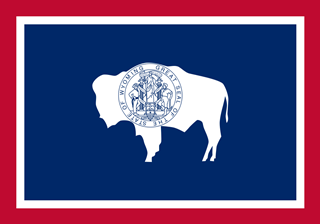 Lawmakers are reconsidering a new law placing caps on political action committee (PAC) spending in state elections. A majority of the Joint Corporations, Appropriations, and Political Subdivisions Interim Committee voted to order its nonpartisan staff to draft a bill repealing a section of state law before it becomes effective on January 1, 2015.
Lawmakers are reconsidering a new law placing caps on political action committee (PAC) spending in state elections. A majority of the Joint Corporations, Appropriations, and Political Subdivisions Interim Committee voted to order its nonpartisan staff to draft a bill repealing a section of state law before it becomes effective on January 1, 2015.
If not repealed, the law will cap direct or indirect PAC contributions at $7,500 to any statewide candidate and $3,000 to any other candidate. Currently there is no limit for PAC contributions.
In a separate measure, the committee ordered a draft bill to repeal the state’s aggregate contribution limits, which conflict with the U.S. Supreme Court’s ruling in McCutcheon v. Federal Election Commission.
On Thursday, June 5, Colorado Deputy Secretary of State Suzanne Staiert issued an agency decision in response to Citizens United’s petition for declaratory order. Citizens United requested its upcoming documentary be excluded from the definition of reportable electioneering communication by […]
 On Thursday, June 5, Colorado Deputy Secretary of State Suzanne Staiert issued an agency decision in response to Citizens United’s petition for declaratory order. Citizens United requested its upcoming documentary be excluded from the definition of reportable electioneering communication by classifying it as one of the constitutional exemptions. The secretary of state found the communication does not fall within any exemptions and there is no general press-entity exemption to the definition of electioneering communication.
On Thursday, June 5, Colorado Deputy Secretary of State Suzanne Staiert issued an agency decision in response to Citizens United’s petition for declaratory order. Citizens United requested its upcoming documentary be excluded from the definition of reportable electioneering communication by classifying it as one of the constitutional exemptions. The secretary of state found the communication does not fall within any exemptions and there is no general press-entity exemption to the definition of electioneering communication.
As Citizens United engages in communication for the primary purpose of influencing elections, it is exactly the type of entity to which reporting requirements apply. To rule otherwise would defeat the purpose of state campaign finance law and disregard the rationale behind full disclosure.
Moreover, the secretary of state found it does not have the authority to create a general press exemption to campaign finance reporting requirements. Although the Federal Election Commission applies such an exemption for Petitioner at the federal level, the secretary of state lacks the authority to import the FEC’s analysis and decision. Therefore, Petitioner’s remedy at the state level lies with courts in the form of litigation, with the legislature in the form of referendum, or with the people in the form of initiative.
June 6, 2014 •
South Carolina Senate Has Work For Veto Session
Lawmakers adjourned the regular session on Thursday, June 5, 2014, but will return for a veto session on June 17. House Bill 3945, the ethics reform bill, passed the House, but was filibustered by Sen. Lee Bright. The Senate will […]
 Lawmakers adjourned the regular session on Thursday, June 5, 2014, but will return for a veto session on June 17. House Bill 3945, the ethics reform bill, passed the House, but was filibustered by Sen. Lee Bright. The Senate will have a final opportunity to vote on the measure during the veto session.
Lawmakers adjourned the regular session on Thursday, June 5, 2014, but will return for a veto session on June 17. House Bill 3945, the ethics reform bill, passed the House, but was filibustered by Sen. Lee Bright. The Senate will have a final opportunity to vote on the measure during the veto session.
Gov. Nikki Haley confirmed on Twitter she would sign the bill if passed.
The Senate is also expected to select a new President Pro Tem, who will automatically be promoted to lieutenant governor and replace retiring Lt. Gov. Glenn McConnell. Former President Pro Tem John Courson resigned to avoid becoming lieutenant governor.
June 6, 2014 •
News You Can Use Digest – June 6, 2014
National: Betting on a Brand When Politics Is the Family Business New York Times – John Harwood | Published: 5/29/2014 Surveys have shown past experiences with a product or memories of family and friends using it shaped consumers’ buying decisions. […]

National:
Betting on a Brand When Politics Is the Family Business
New York Times – John Harwood | Published: 5/29/2014
Surveys have shown past experiences with a product or memories of family and friends using it shaped consumers’ buying decisions. Democrats’ hopes of holding the U.S. Senate this fall rest significantly on the political equivalent of that “brand capital.” In four states that usually lean Republican, Democrats will be running candidates from families with multigenerational records of political success. If at least two of the four legacy candidates can eke out victories, the Democrats’ chances of holding the Senate will be better than even.
‘Colbert Report’ Taught Viewers More about Super PACs than Cable News
U.S. News & World Report – Tierney Sneed | Published: 6/2/2014
Leading up to the last presidential election, the faux conservative host of ‘The Colbert Report” created a super PAC and a secretive “dark money” group on his show. Viewers who saw those satirical segments were significantly better informed about the role of money in politics than viewers of any other news channels, according to the Annenberg Public Policy Center. Stephen Colbert created Americans for a Better Tomorrow, Tomorrow with the help of former FEC Chairperson Trevor Potter. “The Colbert Report” was particularly effective because of the detail the show went into, and the narrative arc of its examination that lasted many months throughout the election cycle.
Federal:
Politico – Anna Palmer and Byron Tau | Published: 6/4/2014
After Patton Boggs’ recent merger with Squire Sanders was finalized, so many lawyers and lobbyists fled the firm that moving trucks lined up in front of its K Street headquarters. One Patton Boggs insider estimated 200 attorneys, lobbyists, and staff, through layoffs, buyouts, and departures, will have left the firm by the time everything settles down. At its peak in recent years, the firm had about 500 lawyers and lobbyists.
Washington Post – Catherine Ho | Published: 6/1/2014
The lobbying industry, once dominated by a handful of big, powerful personalities, has given way to a broader and more grassroots business that has more voices – and must influence more decision makers – than ever before. The Washington Post highlighted some of the lobby firms that are shaking things up, either by starting anew, transforming their structure to do business differently, or experimenting with new ways to broker change through social media and other outlets.
From the States and Municipalities:
Alabama – After 17 Years at Helm, Executive Director Announces Retirement from Alabama Ethics Commission
Columbus Republic – Philip Rawls (Associated Press) | Published: 6/4/2014
Alabama Ethics Commission Executive Director James Sumner is retiring on October 1, ending more than 17 years as the agency’s top staff member. Sumner made note of his efforts to strengthen the ethics code, which culminated in lawmakers passing legislation that included reducing the amount a lobbyist could spend on entertaining a public official, giving subpoena power to the Ethics Commission, and guaranteeing an annual appropriation to the commission so it would not be subject to legislative whims.
California – Indicted Yee Gets a Quarter-Million Votes for Secretary of State
Los Angeles Times – Phil Willon | Published: 6/4/2014
Charges of corruption and gun-running conspiracy notwithstanding, almost 10 percent California voters thought suspended state Sen. Leland Yee should become secretary of state. He was arrested in March and indicted several days later as part of a sweeping investigation into organized crime. Yee had dropped out of the race, but not before a deadline to remove his name from the ballot had passed.
Colorado – Colorado Mulls Forcing Citizens United to Disclose Donor Identities
Colorado Independent – Tessa Cheek | Published: 6/4/2014
Political-advocacy group Citizens United is asking for its upcoming film on Colorado politics to be exempt from the state’s campaign finance laws. The group plans to release the film shortly before the upcoming November election, containing images of and messages about Colorado politicians, though it will not expressly advocate a position on races. If the group gains status as a news media organization, it will not be required to disclose its donors or file campaign finance information around the launch and promotion of its film.
District of Columbia – Former D.C. Council Member Michael A. Brown Gets More Than 3 Years in Bribery Case
Washington Post – Ann Marimow and Mike DeBonis | Published: 5/29/2014
Former District of Columbia Councilperson Michael Brown was sentenced to more than three years in prison for taking bribes in an undercover FBI sting, a comparatively stiff sentence from a judge who said “we cannot have city government run this way.” In the sting operation, Brown took $55,000 in cash payments, handed to him in rolls and stacks of $100 bills transmitted in coffee mugs and duffel bags. The undercover FBI agent was posing as a businessperson seeking preferential treatment on government contracts.
District of Columbia – Vultures on K Street? Yes, Birds of a Feather Flock Together
Washington Post – Theresa Vargas | Published: 6/2/2014
Tell people two vultures have made a home at the intersection of K and 11th streets in Washington, D.C. and they will likely ask the same question Charlie Dewitt did. “The bird variety?” he wondered. K Street is renowned for office buildings filled with highly paid, powerful lobbyists who, along with others in the city’s political food chain, are often called scavengers – and worse. “We have vultures and turkeys and other kinds of creatures here,” joked Dewitt, a lobbyist who has worked in Washington for 25 years.
Maine – Maine Nixes Cap That Limits How Much Individuals Can Give to Campaigns
Lewiston Sun Journal – Christopher Cousins (Bangor Daily News) | Published: 6/4/2014
The Maine Commission on Governmental Ethics and Election Practices will not enforce the state’s $25,000 aggregate limit on campaign contributions by individuals, based on a recent U.S. Supreme Court decision. The change means anyone can donate as much as they want across a range of candidates, though caps on how much each campaign can receive from an individual remain in place. “The commission has determined that it will not enforce the … aggregate limit … during 2014 unless and until it receives further guidance from the … Legislature or a court …,” according to the opinion.
New York – Ex-Brooklyn Prosecutor Charles J. Hynes Accused of Misuse of Funds
New York Times – Stephanie Clifford and William Rashbaum | Published: 6/2/2014
A report by New York City’s Department of Investigation accuses former Brooklyn District Attorney Charles Hynes of using money seized from drug dealers and criminal defendants to pay for a political consultant. Barry Kamins, the administrative judge for the city’s criminal courts, was also implicated in the case. The report said Kamins violated the judicial code of ethics by advising Hynes on his campaign, offering legal advice, and discussing matters the district attorney’s office was actively prosecuting.
North Carolina – Patrick Cannon Pleads Guilty to Corruption Charge
Charlotte Observer – Ely Portillo and Elizabeth Leland | Published: 6/3/2014
Former Charlotte Mayor Patrick Cannon pleaded guilty to honest services wire fraud, which carries a sentence of up to 20 years in prison and a $250,000 fine. An FBI sting recorded him accepting more than $48,000 in cash, airline tickets, a hotel room, and the use of a luxury apartment from undercover agents posing as estate developers who wanted to do business in the city. Cannon was arrested on March 26 and resigned the same day, less than six months after taking office.
South Carolina – SC Lawmakers Agree on Ethics Reform but ‘Most Important Part … Not Getting Done’
The State – Jamie Self | Published: 6/4/2014
A conference committee in the South Carolina Legislature agreed to drop a proposal to establish an independent commission to investigate ethics violations. The compromise reform bill, which is expected to be approved before the legislative session adjourns, raises the annual lobbyist registration fee from $100 to $200. Super PACs would be required to disclose their top five donors and any donor who gives more than $10,000, among other provisions.
Utah – Johnson: Swallow had me launder donations to Lee’s campaign
Salt Lake Tribune – Robert Gehrke | Published: 6/4/2014
Indicted businessperson Jeremy Johnson told investigators he helped launder tens of thousands of dollars to U.S. Sen. Mike Lee’s 2010 campaign at the request of former Utah Attorney General John Swallow, according to an affidavit. Johnson said gave about $50,000 to other people who then donated to Lee’s campaign, circumventing election law that sets maximum individual donations to candidates.
West Virginia – Ethics Commission Fires Executive Director
Charleston Daily Mail – Dave Boucher | Published: 6/5/2014
The West Virginia Ethics Commission fired Executive Director Joan Parker after a lengthy executive session. Commission members gave no reason for their decision. “If you, commissioners, choose to end my employment, I will leave with my head held high knowing that throughout my tenure I have dedicated my efforts to maintaining the integrity of the Ethics Commission and have done everything within my power, even when it was unpopular, to promote compliance with the ethics act,” Parker said before the vote.
 State and Federal Communications produces a weekly summary of national news, offering more than 80 articles per week focused on ethics, lobbying, and campaign finance.
State and Federal Communications produces a weekly summary of national news, offering more than 80 articles per week focused on ethics, lobbying, and campaign finance.
News You Can Use is a news service provided at no charge only to clients of our online Executive Source Guides, or ALERTS™ consulting clients.
June 5, 2014 •
Thursday News Roundup
Lobbying “Caterpillar hires Ray LaHood as a consultant” by Megan R. Wilson in The Hill. Campaign Finance “Stephen Colbert exults in Colbert-crowning study” by Erik Wemple in The Washington Post. California: “The Election’s Over, Where Does The Money Go?” by […]
 Lobbying
Lobbying
“Caterpillar hires Ray LaHood as a consultant” by Megan R. Wilson in The Hill.
Campaign Finance
“Stephen Colbert exults in Colbert-crowning study” by Erik Wemple in The Washington Post.
California: “The Election’s Over, Where Does The Money Go?” by Grant Scott-Goforth in The North Coast Journal.
Missouri: “Kansas City Council panel supports campaign contribution limits” by Lynn Horsley in The Kansas City Star.
Ohio: “Daughter testifies against Benjamin Suarez in campaign finance scheme trial” by Ed Meyer in the Akron Beacon Journal.
Texas: “Texas Ethics Commission fines state Rep. Linda Harper-Brown $5,000 for obscuring campaign loans” by Gromer Jeffersd, Jr. in The Dallas Morning News.
Ethics
South Carolina: “SC lawmakers agree on ethics reform but ‘most important part … not getting done’” by Jamie Self in The State.
West Virginia: “West Virginia Ethics Commission fires executive director, gives no reason for her termination” by Jonathan Mattise (Associated Press) in The Republic.
Elections
Alabama: “Alabama voter turnout lower than 2010” by The Associated Press in the Montgomery Advertiser.
California: “Top-two primary imperils some legislative comebacks as Democrats seek to hold supermajorities” by Don Thompson (Associated Press) in the Daily Journal.
Missouri: “Missouri moving presidential primary to March” by David E. Lieb (Associated Press) in the St. Louis Post-Dispatch.
Virginia: “Glance of candidates in Va. congressional race” by The Associated Press in the Miami Herald.
Redistricting
Florida: “Redistricting trial wraps up with no decision for weeks” by Aaron Deslatte in the Orlando Sentinel.
June 5, 2014 •
D.C. Election for Attorney General Likely in 2014
Washington, D.C. voters will have the chance to elect an attorney general in the upcoming months, thanks to a decision by the D.C. Court of Appeals. Currently, the attorney general is appointed by the mayor. In 2010, voters approved a […]
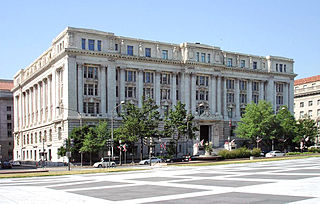 Washington, D.C. voters will have the chance to elect an attorney general in the upcoming months, thanks to a decision by the D.C. Court of Appeals. Currently, the attorney general is appointed by the mayor.
Washington, D.C. voters will have the chance to elect an attorney general in the upcoming months, thanks to a decision by the D.C. Court of Appeals. Currently, the attorney general is appointed by the mayor.
In 2010, voters approved a charter amendment authorizing the first election of the city’s attorney general and setting a primary election for April 2014. In late 2013, the council passed a law delaying the election from 2014 to 2018, fearing the city lacked the necessary preparation.
Paul Zukerberg, the only candidate for the city’s first attorney general race, challenged the 2013 law in court. On June 4, 2014, the Court of Appeals ruled an election must be held in 2014 unless it would not be practically possible for the D.C. Board of Elections to do so. The Court further noted the possibility of a 2015 election if a 2014 election is not possible.
Following a directive by the Court of Appeals to set a date for a special election in as few as 70 days, the D.C. Superior Court will now decide how soon the election must be held. Although the election is projected to be scheduled on November 4, 2014, the same day as the mayoral election, an election before November is also a possibility.
Photo of the John A. Wilson Building courtesy of Andrew Wiseman on Wikimedia Commons.
June 5, 2014 •
California Has First Open Primary For Governor
Neel Kashkari is the Republican nominee for governor after placing second with 19 percent of the vote in the first primary election for governor held under California’s open primary rules. The top two finishers in the primaries move on to […]
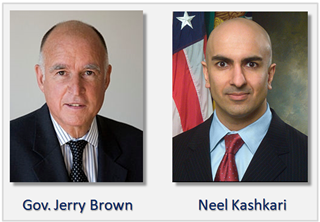 Neel Kashkari is the Republican nominee for governor after placing second with 19 percent of the vote in the first primary election for governor held under California’s open primary rules. The top two finishers in the primaries move on to the general election, regardless of party affiliation.
Neel Kashkari is the Republican nominee for governor after placing second with 19 percent of the vote in the first primary election for governor held under California’s open primary rules. The top two finishers in the primaries move on to the general election, regardless of party affiliation.
Kashkari, a native of Stow, Ohio, ran the federal bailout of the U.S. banking system and finished second to Gov. Jerry Brown, who took nearly 55 percent of the returns. Brown, who currently enjoys high approval and campaign donations, is expected to be elected to a record fourth term in November.
June 5, 2014 •
South Carolina Ethics Bill Passes Conference
The conference committee formed to resolve differences in competing ethics bills has reached an agreement. House Bill 3945 is now poised to revise the state’s ethics laws, but will not include an independent committee to review complaints against lawmakers. Members […]
 The conference committee formed to resolve differences in competing ethics bills has reached an agreement. House Bill 3945 is now poised to revise the state’s ethics laws, but will not include an independent committee to review complaints against lawmakers. Members of the House and Senate will continue to investigate their own members, described by critics as the “fox guarding the henhouse.”
The conference committee formed to resolve differences in competing ethics bills has reached an agreement. House Bill 3945 is now poised to revise the state’s ethics laws, but will not include an independent committee to review complaints against lawmakers. Members of the House and Senate will continue to investigate their own members, described by critics as the “fox guarding the henhouse.”
Lawmakers agreed to raise the annual fee for registered lobbyists to $200 from $100, but rejected a proposal to require consultants to register and pay fees with the state. The bill also revises the previously unconstitutional definition of “committee” in order to require reporting for anonymous political groups attacking candidates.
The final version of the bill needs approval from the House and Senate before heading to Gov. Nikki Haley for consideration.
The Maine Commission on Governmental Ethics and Election Practices will no longer enforce the yearly aggregate contribution limit applicable to individuals and entities contained in Maine Revised Statutes section 1015(3). In a policy statement issued June 4, 2014, the commission […]
 The Maine Commission on Governmental Ethics and Election Practices will no longer enforce the yearly aggregate contribution limit applicable to individuals and entities contained in Maine Revised Statutes section 1015(3). In a policy statement issued June 4, 2014, the commission cited recent U.S. Supreme Court decision McCutcheon v. FEC as authority for its determination.
The Maine Commission on Governmental Ethics and Election Practices will no longer enforce the yearly aggregate contribution limit applicable to individuals and entities contained in Maine Revised Statutes section 1015(3). In a policy statement issued June 4, 2014, the commission cited recent U.S. Supreme Court decision McCutcheon v. FEC as authority for its determination.
The commission stated it will no longer enforce the $25,000 aggregate limit “unless and until it receives further guidance from the Maine Legislature or a court of competent jurisdiction.”
The policy statement also noted the commission’s intention to study the issues and perhaps propose legislation during the next state legislative session.
June 4, 2014 •
Executive Director of Alabama Ethics Commission Retiring
Jim Sumner, executive director of the Alabama Ethics Commission, is retiring after 35 years in public service. Sumner has held the executive director position for 17 years. Upon his departure on October 1, 2014, the five-member Ethics Commission will pick […]
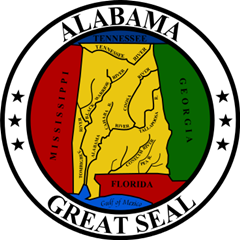 Jim Sumner, executive director of the Alabama Ethics Commission, is retiring after 35 years in public service.
Jim Sumner, executive director of the Alabama Ethics Commission, is retiring after 35 years in public service.
Sumner has held the executive director position for 17 years.
Upon his departure on October 1, 2014, the five-member Ethics Commission will pick Sumner’s successor, subject to approval by the state Senate.
June 4, 2014 •
Wednesday Government Relations News
Lobbying “Lobbying World” in The Hill. “A lifetime ban on lobbying for lawmakers?” by Cristina Marcos in The Hill. Campaign Finance “FEC Summarizes Campaign Activity of the First 12 Months of the 2013-2014 Election Cycle” news release on the Federal […]
 Lobbying
Lobbying
“Lobbying World” in The Hill.
“A lifetime ban on lobbying for lawmakers?” by Cristina Marcos in The Hill.
Campaign Finance
“FEC Summarizes Campaign Activity of the First 12 Months of the 2013-2014 Election Cycle” news release on the Federal Election Commission website.
“Reformers: It’ll take scandal to stop PACs” by Joe Battenfeld and Hillary Chabot in the Boston Herald.
Mississippi: “Mississippi Senate: Another race with record money” by The Associated Press on WZVN ABC 7 News.
Ethics
Alabama: “Alabama Ethics Commission director Jim Sumner to retire” by Brian Lyman in the Montgomery Advertiser.
Louisiana: “Senate rejects Jindal ethics board appointee” by The Associated Press on WAFB News.
South Carolina: “SC lawmakers try to find ethics compromise” by Jeffrey Collins (Associated Press) in the Charlotte Observer.
Elections
“Top takeaways from Tuesday’s primaries” by Paul Steinhauser, Ashley Killough and Dana Davidsen on CNN.
Government Tech and Social Media
“How Twitter Could Be Replaced As The Primary Political App” by David Jones in Social News Daily.
June 4, 2014 •
New Mexico Martinez and King Win Gubernatorial Primaries
Attorney General Gary King received more than 33 percent of the vote in a field of five candidates to win the Democratic nomination for governor. King will face a general election match-up with Republican Gov. Susana Martinez, who ran unopposed […]
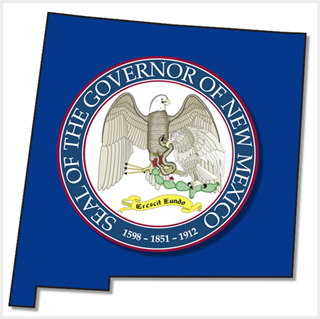 Attorney General Gary King received more than 33 percent of the vote in a field of five candidates to win the Democratic nomination for governor. King will face a general election match-up with Republican Gov. Susana Martinez, who ran unopposed in the Republican primary.
Attorney General Gary King received more than 33 percent of the vote in a field of five candidates to win the Democratic nomination for governor. King will face a general election match-up with Republican Gov. Susana Martinez, who ran unopposed in the Republican primary.
Martinez, a former district attorney from Las Cruces, was elected the state’s first female governor and the nation’s first female Hispanic governor in 2010.
King, a former state legislator and son of former Gov. Bruce King, raised about $476,000 for his gubernatorial bid since October. More than half of the contributions were in the form of King’s personal loans to the campaign.
During the same period, Martinez raised more than $2.4 million in campaign contributions.
June 4, 2014 •
Mississippi U.S. Senate Primary May Be Decided in Runoff
The U.S. Senate primary between incumbent Sen. Thad Cochran and tea party challenger Chris McDaniel remains too close to call after the June 3 election date. If neither candidate receives 50 percent of the vote, a runoff election will be […]
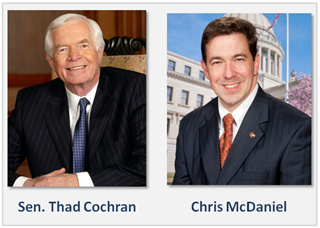 The U.S. Senate primary between incumbent Sen. Thad Cochran and tea party challenger Chris McDaniel remains too close to call after the June 3 election date.
The U.S. Senate primary between incumbent Sen. Thad Cochran and tea party challenger Chris McDaniel remains too close to call after the June 3 election date.
If neither candidate receives 50 percent of the vote, a runoff election will be scheduled for June 24.
The race was considered one of the few remaining chances for a tea party victory after a string of primary challenges ended in defeat.
State and Federal Communications, Inc. provides research and consulting services for government relations professionals on lobbying laws, procurement lobbying laws, political contribution laws in the United States and Canada. Learn more by visiting stateandfed.com.


